Redistricting and special election from representatives
By Staff Reports
Published in News on January 18, 2017 10:14 AM
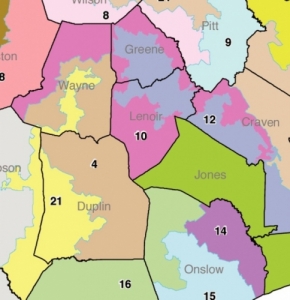
Wayne County is part of N.C. House Districts 21, 4 and 10. The district lines, which have been deemed by a three-judge appellate panel as illegally racially gerrymandered, will not be redrawn yet because the U.S. Supreme Court put a temporary block on redrawing the lines as well as holding a special election in July
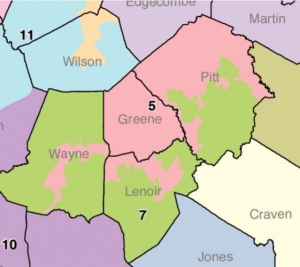
Wayne County is part of N.C. Senate Districts 5 and 7.
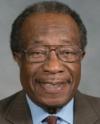
Rep. Larry Bell
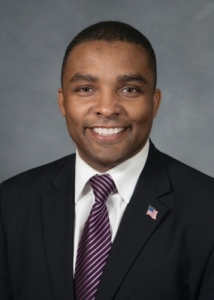
Sen. Don Davis
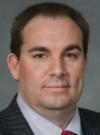
Rep. John Bell
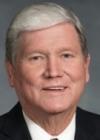
Rep. Jimmy Dixon

Sen. Louis Pate
The U.S. Supreme Court last week temporarily blocked a three-judge appellate panel decision to redraw 28 legislative districts in North Carolina.
Wayne County is home in part to a few of those gerrymandered districts for which, had the lines been redrawn, each would have required special elections to determine representation.
Due to the district lines that were drawn in 2011, Wayne County now has a total of three House representatives and two senators in Raleigh.
Sen. Louis Pate, a Mount Olive Republican representing District 7, said he believes Wayne County's legislators offer a good blend representing both parties.
With two Republicans and one Democrat in the House and one from each party in the Senate, it's reflective of districts across the state, he said.
"Looking at the balance between the parties, I believe Wayne County is in the same ratio as the rest of the state," Pate said.
Pate, the Senate's deputy president pro tem, doesn't view his district's composition as creating a disadvantage to voters.
District 7 -- which among registered voters is about 75 white and 20 percent black -- includes Wayne County and portions of Lenoir and Pitt counties.
"There are probably voters in every district in the state that are not particularly satisfied with their officials, but that's why we have elections," Pate said.
Rep. John Bell, R-Dist. 10, said that not only is Wayne County represented fairly, but for a county of its size and rural nature, the county has a "pretty sizeable legislative delegation."
Bell's district is more than 77 percent white, among registered voters, and 19 percent black.
Rep. Larry Bell, D-Dist. 21, however, feels that reducing the number of representatives for North Carolina would be helpful, as it would make getting things done less confusing and require fewer steps.
Registered voters in Rep. Larry Bell's district are about 43 percent white and a little more than 51 percent black.
Rep. Jimmy Dixon, R- Dist. 4, said the 2011 district lines were drawn and "pre-cleared" by the Obama administration's justice department.
Dixon said the lines for Rep. Larry Bell were drawn before his to produce a minority-majority district, as were Sen. Don Davis'.
"The issue appears to me to be that many in the minority community want (to have) their cake and eat it too. They have accused us of packing more minorities in a district than is needed. We have been accused, in the past of not putting enough minorities in a district to make it a consistently amenable district for the minority representation," he said.
"Unless we have a standard from which to judge or assess, then it is so easy to get carried away with rhetoric that the public, in general, does not understand and we can miss the entire point of the issue that we are talking about. I think that is unfortunate. Either we uphold the decisions going back as far as 1965, and we create districts that have 50 percent or more (minorities) or we don't."
Dixon's District 4 is made up of 74 percent white registered voters and around 22 percent black.
Rep.John Bell echoes many of the same sentiments as Dixon and said the 4th Circuit judge panel was trying to change the outcome of the election that gave the Republicans a veto-proof majority in the General Assembly.
"That is how our state constitution is very clearly laid out. For a court to try to change the outcome of an election by throwing in an unnecessary and costly election -- you would have had complete chaos across the state. The districts that were drawn were pre-cleared by President Obama's and Eric Holder's Justice Department. They were pre-cleared," he said.
Every court, with the exception of the 4th Circuit Court, has up held the districts as constitutional, fair and legal under the law that they were drawn, at the time they were drawn, Bell said.
"To have judges in the 4th Circuit Court that continuously ignore the letter of the law and the constitution and skew it for their own political gain -- that is not the way our court system was set up," he said. "That is not the purpose of our court system."
The 4th Circuit Court completely ignore a 400-page ruling by the lower court that the districts were fair and legal, Bell said.
Pate, Dixon and John Bell all say that the General Assembly officers are elected for two-terms and a special election would go against the state's Constitution.
"That is not in compliance with the state Constitution because members of the General Assembly are elected for two-year terms," Pate said. "Now, they've come out trying to redraw the entire General Assembly districts. It's politics being played."
Rep. John Bell said a special election would created chaos on a state level and been confusing to voters.
"If this had gone through you would have had people in Wayne County running for office in a special election and right next door in Johnston County, they would not have been affected because their House seats are just Johnston County," he said.
"You would have no member in Johnston County running for office in the House. You would have had them voting on a senator because that district is multi-county. Half of the General Assembly would be running the other half wouldn't."
Dixon said the U.S. Supreme Court showed "great wisdom" in temporarily blocking the district lines redraw and special election.
"Bottom line, I think the Supreme Court showed great wisdom with almost an unbelievably eight to nothing vote that says, 'Wait a minute, this issue needs a dedicated, intensive look before we unelect people who were properly and legally elected,'" Dixon said.
Rep. Larry Bell supports a special election.
"I would like to see the districts get straightened out to be more equal. Even if it would cause inconvenience, if it would be something that would benefit us in the long term, it's something we need to do," Larry Bell said.
Sen. Don Davis, D-Dist. 5, said he places his trust in the courts to decide the matter.
"Are we representing the people in accordance with the Constitution," he asked.
"Legal minds are working really hard to sort through all of that," he said.
While some say the lines are adequate as they are currently drawn; others say they are unconstitutional, he said.
Davis' District 5 is around 41 percent white when it comes to registered voters, and 53 percent black..
Pate, Dixon, John Bell and Davis all believe that bringing in a nonpartisan group to redraw the lines would not necessarily solve the problem.
"These are really two separate issues," Davis said. "No matter who draws the maps, that doesn't take it beyond any legal concerns that might come up"
"That is great in theory because everybody likes nonpartisan," said John Bell.
"There is no such thing as a nonpartisan election. If the Republicans are in the majority, and they are able to draw the districts, the people they are going to support more Republican-leaning areas. If Democrats are in control, they are going to draw districts that support districts that are more Democrat leaning. I don't know how you get around that one."
Rep. Larry Bell supports a nonpartisan attempt to redraw the lines. He said it was "the only way to get it done" if such a group could be formed and that it would be the best way to avoid gerrymandering because otherwise "the party in power will do what benefits them."
